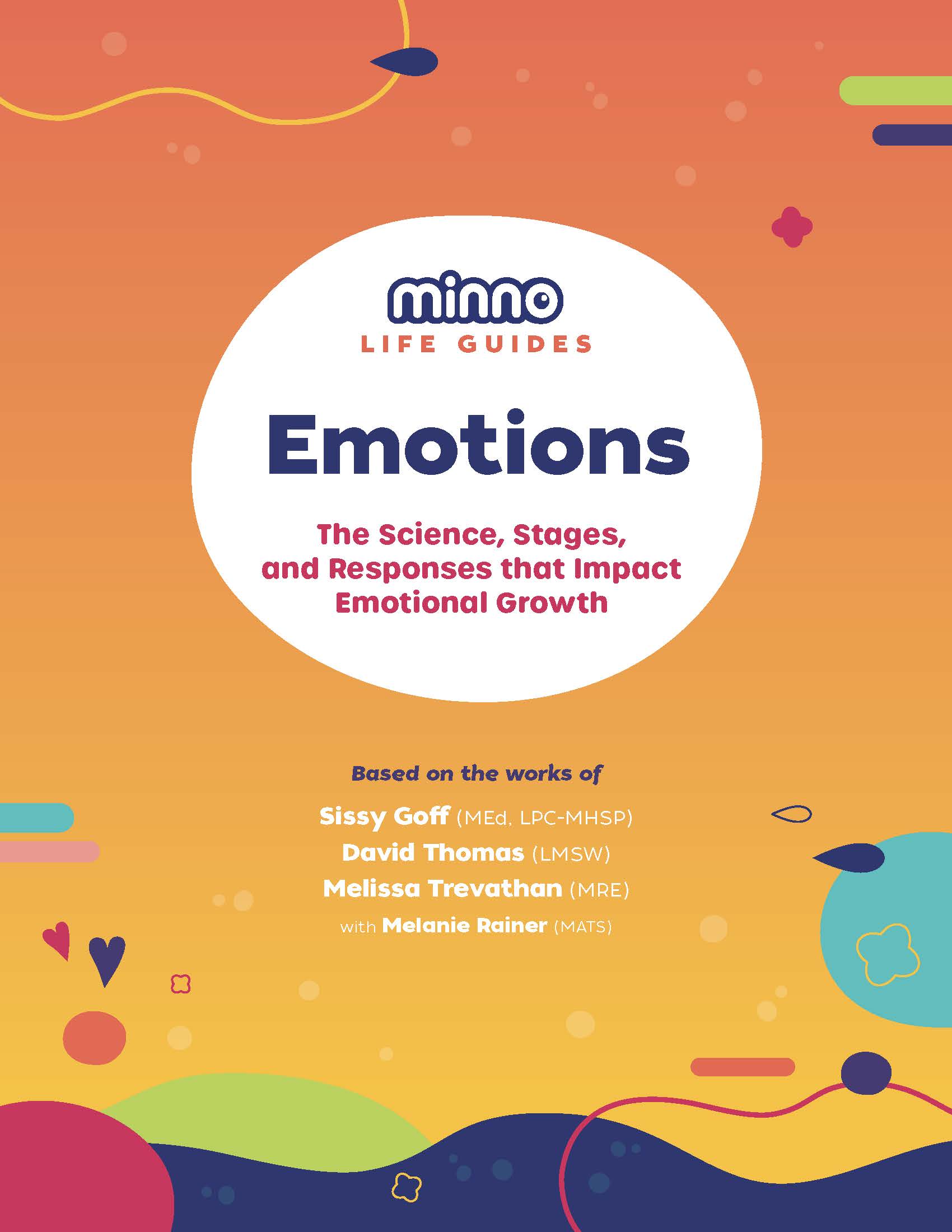How to Help Your Kids Grow Through Their Emotions

Emotions are a story I have had to confront. Over and over.
Emotions are not entirely natural for me. I want to value my facts over my emotions. I’m ex-military. An entrepreneur. I’ve been part of the early days at companies that are now household names. I like to solve problems, analyze data, and move forward without all the lag that comes with emotion.
But emotions are data, too. To miss that is to actually ignore the whole picture. Unfortunately, culture holds little space for men and emotions. Headlines tout the negative stigma that covers men and mental health, and statistics illustrate the likelihood of kids turning to mom for their spiritual growth rather than dad. So the result is men who are stuck.
The problem is, ignoring emotions has spiritual consequences. Unaddressed feelings become a breeding ground for our idols and temptations. If we don’t own our emotions, they will own us. For me, I needed to prove myself so deeply that I fell into a clinical depression following a failed business and challenging business relationships. The harder I worked, the deeper the hole I dug. I made an idol out of over-reliance on my own competency. And actually wound up with zero ability to do much on my own.
When I finally took the importance of emotions to heart —pun intended—a shift started. I could believe the burgeoning neuroscience connecting our physical state to our emotions, and the words of a favorite scientist: “Although many of us think of ourselves as thinking creatures that feel, biologically we are feeling creatures that think.” I could finally understand what a business mentor told me once: “Emotion is what puts us in motion.” Look no further than fact-laden Facebook posts that are actually fueled by anger.
Then I invited God into my emotions, and I changed. Oftentimes, we are led to believe that emotions—often negative—are not Biblically okay. But they are true things. They exist. God is certainly a feeling creature with anger, satisfaction, jealousy, and He made us in His image. The Psalms are full of woe and frustration. In the Gospels, we hear of a father pleading with Jesus for the healing of his son, asking, “help me with my unbelief.” Noah, David, Moses, and the disciples all showed emotion. Even Jesus, with full knowledge of His fate, wept.
So what do we do with emotions? Sitting with God, our emotions, and a journal is the first step. You’re not there to write pages and pages. You’re there just to answer two simple questions:
- “What am I feeling and why?”
- “What is that feeling telling me about God in my life?”
While my emotions may not line up with God’s Word, that doesn’t make them untrue nor a significant motivator in my life. I’ve learned God’s Word is true and so are my emotions . . . but my emotions and what I’m feeling about life are the things that need to change. The only way that happens is by talking to the Lord about them and asking Him to help me change. There’s nothing we’re dealing with that God hasn’t seen or dealt with before. The key is opening up to Him and looking to Him to inform how we are viewing the world and how we need to change. We can’t change ourselves; it’s God’s work in our lives that allows us to be conformed to Christ’s image. We can’t access that power and transformation if we don’t talk to the Father.
This is really the work of sanctification, over and over finding the ways Christ calls us to be more like Him. Looking back at the Scripture examples, the Psalmist turns to praise, recognizing that his circumstances are not the source of joy. The father of the sick boy asks for a heart change. Neither sits in their emotion and shame but instead asks for God to show them the place their hearts can align with His.
As we do this work for ourselves, it bleeds into our families. Expressing emotion regarding what was happening around me, my wife, and my girls validated the emotions my kids felt about the very same situation. I wound up being able to crawl out of that clinical depression, because I engaged in not just the facts, but also the feelings I had around the hard efforts of my work.
Practically speaking, the pace of life means we often live side-by-side, not face-to-face with our families. With that side-by-side living comes a great opportunity to turn transactional moments into times of transformation in our relationship with our kids.
- Car Time/Dinner/Waiting for Something to Start: Ask your kids how their day’s events made them feel—their highs and lows—and tell them how your day’s events made you feel. Instead of sharing a list of activities, connect with the emotions—the same and different—you each experienced. What was the best part of your day? What was the worst?
- Vacation: Acknowledge and then discuss how the views and experiences you encounter make you feel, from the ocean and plane window views to even the frustrations of failed plans. Remind your kids who made all of these things for our pleasure. How does it feel to be someplace different? What does this place or experience feel like?
- During Holidays: Balance commercialism with spiritual themes. For Christmas, Advent’s four themes of Hope, Peace, Joy, and Love offer perfect opportunities to talk about what has brought on those emotions, or robbed us of them, in the past year.
- Watching the News: For many of us, the news today makes us feel unsure, angry, frustrated, and, maybe occasionally, happy, or relieved. Tell your kids that what is happening in the world matters to your heart, because they probably have feelings about it too.
- Telling Stories: Tell your kid about your accomplishments, memories, and failures as a kid, and tell them how it made you feel. No doubt, they have emotions around their daily life and want to hear that you did, too. Our kids don’t naturally think that we were kids, too, with similar struggles. Sharing those challenges provides an opportunity to speak into their lives in a more meaningful way.
- Finally, Ask Them: “What do you think God thinks or feels about this?” Kids have a natural curiosity about life, so encourage them to ask God the very same questions that you ask them. It drives them to engage, and it drives them to seek truth in God’s Word.
We can’t just muscle through this stuff. Kids can sniff out inauthenticity better than most adults. Believe it or not, they are spiritual beings. By sharing my feelings with my girls, I’ve learned that it becomes a gateway for connection that they are desperately seeking and longing for . . . not that radically different from what we are looking for from our Father in Heaven. It also makes those tougher moments in life—the disappointments or the discipline—a little easier because we have a shared foundation.
Try it. If this ex-military, die-hard entrepreneur, ENTJ-on-the-Meyers-Briggs can, I believe God will help anyone.
. . . . . . . . . .
For more help navigating emotions with your kids, read our Life Guide, Emotions: The Science, Stages, and Responses that Impact Emotional Growth.
Grab it in the Minno Store for just $4.99!
. . . . . . . . . .

Erick Goss is the CEO of Minno, a Christian children’s media company that helps kids and families delight in God.
